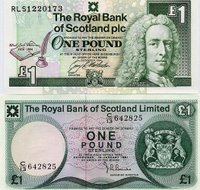En françaisI originally wrote this for new or potential residents of Canada. However, even long time residents may find this useful.
Taxes in Canada It is difficult to compare taxes from one jurisdiction to another because there are so many variables. For most people, federal income tax is the highest, followed by provincial income tax, provincial sales tax, federal sales tax and municipal property taxes (municipal, regional and school). To taxes, you also have to add fees. They are generally more prevalent at the local level (where the only alternative revenue source is property tax). However, they do exist at other levels of government (such as the passport fee). At the municipal level, they fees are generally related to the actual cost. However, at higher levels of government, the fees are often less related to the actual cost (such as the fee for a passport or the immigration fee).
Great sound;
Great skin;
Great Canadian Books;
Great perfume, low prices.
Sales tax The sales tax in Quebec, New Brunswick, Nova-Scotia, and Newfoundland is harmonized with the federal sales tax (although Quebec has some exceptions such as books). The rate varies from province to province but applies to all products and services with some exceptions like food and public transportation. In other provinces, the sales tax is calculated in different ways and applies to different products and/or services.
In Quebec, the sales tax on products and services is 15%. In the Atlantic Provinces it varies from 15 to 17%. In Ontario, the 8% provincial sales tax does not apply to most services. So you will only pay the federal sales tax on a hair cut whereas in Quebec you will pay 15% tax (federal plus provincial). In Ontario, there is no provincial tax on children's clothing or on meals of $4 or less (which explains the popularity of $3.99 meals). In the oil rich province of Alberta, there is no provincial sales tax. In all cases, people with low incomes (approximately $30,000 or less) will receive an allowance four times a year that is supposed to compensate a bit for the sales tax. You will only receive this money after making your first income tax declaration in April (for the previous year from January to December).
Great sound;
Great skin;
Great Canadian Books;
Great perfume, low prices.
Income tax The income tax year is from January first to December 31. You must declare all your income including income from other countries. The province that will receive your tax dollars will be determined by your address on December 31. The income tax declaration, which is mandatory in April, is relatively complicated. Most people deal with professionals or use computer software. There are all sorts of tax credits and exemptions that will determine your taxable income. If you have children, your taxable income can be a few thousand dollars less than your actual income. If your revenue has fluctuated over the year, you may either get some money back or have to make up the difference from what you paid throughout the year.
In Quebec, you must make two declarations, one for each level of government. The income tax rate varies depending on income. The higher the income, the higher the tax rate. Note that the income tax rate is determined based on individual income whereas the income tax credits, that will affect your taxable income, are often based on your family's income.
Great sound;
Great skin;
Great Canadian Books;
Great perfume, low prices.
Fake premiums Certain provinces, Ontario and Alberta for example, have tax rates that appear lower. However, to their income tax in these provinces you must add a more or less fixed amount called "health insurance premiums" which, in fact, only covers a small percentage of the actual cost of providing health care (the rest is cover by income taxes).
Great sound;
Great skin;
Great Canadian Books;
Great perfume, low prices.
Income tax and family When it comes to income tax, a couple where the husband earns $100,000 a year and the wife $0 (or vice-versa) is significantly disadvantaged compared to a couple where each partner earns $50,000. Of course, if there are children, the cost of childcare will probably cancel out this fiscal advantage. These childcare fees can vary from as low as $7 in Quebec to as high as $30 in other places! Keep your receipt from childcare fees. The federal government and most provincial governments will give you income tax credits in relation to actual expenses (the fees you paid will reduce your taxable income, but less than what you spent).
Even outside Quebec, childcare spaces are often subsidized by municipalities, by universities or by your employer. Generally, the less you pay, the less flexible and available will be the childcare service. Warning to parents in provincial border communities (Ottawa-Gatineau, for example): Your eligibility may depend on your place of residence!
The best way to avoid paying for childcare is to not work. If you have a full year of work behind you, you can get a maternity leave payment in accordance with the amount normally paid out for loss of employment. Your employer must give you a non-paid 52-week leave in case of pregnancy. The length and timing of the leave are at the sole discretion of the mother. If the mother takes less than a year, the father can take the remaining time (non-paid). Since the amount for loss of employment is based on the average hourly income of the previous 52 weeks, be sure to have at least one full year between maternity leaves.
Although the maternity paid leave is part of the federal employment insurance program, Quebec has special rules that were negotiated with the federal government in what is called asymmetrical federalism. Although generally more generous than the rules in other provinces, there may be the occasional comparative looser. The big winners in Quebec are men, who can get paid parental leave. Quebec also gives maternity leave to self employed women via the pension plan! (Which in Quebec is independent of the Canada Pension Plan)
Great sound;
Great skin;
Great Canadian Books;
Great perfume, low prices.
Municipal property taxes Municipalities being under provincial jurisdiction, generally, the lower the provincial income tax rate, the higher the property taxes. In Ontario, the price of new homes includes a "development charge" that can reach $20,000 per new home. This obviously affects the cost of housing in Ontario.
The property tax rates are determined by municipalities in relation to their responsibilities that are determined by the province. In many urban areas, around 70% of property taxes go to the regional government. For this reason, the property taxes vary little from city to city in the same urban area. Of course, the lower the average property value per person, the higher the property tax rates.
Notwithstanding that local councils are democratically elected, financially, it's in their interest to raise property values per person while keeping costs as low as possible. In many municipalities, councils favour large single family dwellings over other types of housing. Favouritism is translated into zoning bylaws that clearly favour that type of housing. This perverse effect is compounded in provinces like Ontario where municipalities must pay part of the cost of health care and social assistance.
When renting, property taxes are included in the rent as they are charge to the owner. Sometimes, but not notably in Montreal, their renters must pay water rates in relation to consumption (just like for electricity and natural gas). There is usually a fixed amount in addition to the variable user rate. Unless you have a large household, these fixed rates are often higher than the variable rate for consumption!
The inclusion of electricity (lighting, hot water, heating), natural gas (heating, hot water, and oven) and of the water rate in the monthly rent by the owner can make for some substantial savings. In some large apartment buildings, the cost of television cable is also included in the rent. Most utilities require a hundred-dollar deposit. If you have a low income, you may be eligible for an income tax credit that is supposed to cover the cost of property taxes.
Great sound;
Great skin;
Great Canadian Books;
Great perfume, low prices.
Other taxes on salaries From your salary, an amount for the Canada Pension Plan (or Quebec's) will be deducted, as well as for workers compensation and unemployment insurance. Many employers also have mandatory insurance programs (life, pharmaceuticals, dentistry, etc...). The amounts paid to the government vary in part in relation of the salary and nature of the job (for workers compensation).
Deductions for Employment Insurance and the Canada Pension Plan do not apply on the part of the salary that is approximately $45,000. These fees must also be paid by employers. Therefore, there is a certain incentive for employers to pay you under the table, as an independent contractor or to force you to do paid overtime. Note that employers must pay you one and a half times your hourly rate when you work more than 41 hours in Quebec, 44 hours in Ontario and more than your regular work week when under federal jurisdiction (certain industries such as banks and telecommunications are under federal jurisdiction). When you do overtime, employers have the unfortunate habit of resetting the tax rate as if you had gotten a raise. If this happens, you will get a reimbursement at the end of the year after making you income declaration.
Great sound;
Great skin;
Great Canadian Books;
Great perfume, low prices.
Import duties Import duties are significantly lower than in Europe. Duty is 0% for products from the USA, Mexico, Chile and Israel and almost 0% for products from Africa and the Caribbean. Duty is around 15% for products from Europe and Japan.
Great sound;
Great skin;
Great Canadian Books;
Great perfume, low prices.
Special sales taxes Gas tax is significantly less than in Europe. Gas and diesel fuel is taxed by the federal and provincial governments and, in Montreal and Vancouver, by the regional government. Toll highways are rare. There is usually surtax on the sale of new cars and on sports utility vehicles (SUV).
Alcohol is taxed at a high rate by both the federal and provincial governments. These taxes are usually included in the sale price (except sometimes the normal sales tax). Alcohol tax is lower than in Scandinavia. Distribution of wine and spirits is done by provincial agencies (that add to the cost). The alcohol surtax is based on the quantity not the quality. Since the sale price is fixed by government monopolies, some prestigious French wines or Scottish whiskey can be sold for less that in their home countries! However, this is the exception, not the rule.
Great sound;
Great skin;
Great Canadian Books;
Great perfume, low prices.
Other taxes, exporting money You must pay tax to take money or financial instruments out of Canada.
Not taxed -Inheritance (contrary to the USA and Japan)
-Capital gains tax on your home (contrary to the USA)
-Capital gains of small businesses
-No TV license (contrary to the UK)
-Licenses for 3G cell phones (contrary to the UK)
-Accumulated wealth (contrary to some US states)
-Income at the municipal lever (contrary to the UK)
-No municipal sales tax (contrary to the USA)
-Income of Canadians having broken links to Canada for at least two years (but who have kept their citizenship)
-Property value of telecommunications infrastructure (contrary to the USA)
-Tuition
Great sound;
Great skin;
Great Canadian Books;
Great perfume, low prices.
Taxes, bottom line As mentioned in the introduction, it is difficult to compare one jurisdiction to the other because of all the individual variables. But to give you an idea, income taxes are generally lower than in France or Sweden, but higher than in the UK or the USA. Sales taxes are slightly lower in Canada than in Europe but higher than in the USA. The free healthcare system (free except for pharmaceuticals) means that many Canadian workers take home more than if they worked in the US and paid health insurance (healthcare uses up about 50% of provincial budgets).
Property taxes are generally lower in Canada than in the USA (to boot, the school system, under municipal jurisdiction in the USA, is so rotten in some urban areas, most notably New York, that only the poorest children go to public school).
At the moment, the richer provinces are Ontario, Alberta and British Colombia. Saskatchewan, Manitoba, Quebec, New-Brunswick, Nova-Scotia, Prince-Edward-Island and Newfoundland are poorer. You can expect to pay proportionately less tax and receive better quality services in the richest provinces. In the same way, the cost of living (mainly housing) is lower in the poorer provinces.
However, as energy prices rise, keep in mind that Alberta, Quebec and Newfoundland are energy exporters. Nova-Scotia and British-Columbia are newly rich in natural gas but their reserves will be depleted before long. Ontario is the biggest energy consumer in the country and still uses coal and nuclear energy of meet part of its needs. At the moment, the federal government is keeping its hands off energy revenue (other than normal income tax).
Great sound;
Great skin;
Great Canadian Books;
Great perfume, low prices.

 Amazing Race 9 (ABC): The second best show on TV (next to The Simpsons). Travel from your living room.
Amazing Race 9 (ABC): The second best show on TV (next to The Simpsons). Travel from your living room. According to Jim (ABC): Innocent humour. Visual humour (fat brother in law in various costumes.). I'm not sure why the brother AND the sister are always there, but even that is funny in itself.
According to Jim (ABC): Innocent humour. Visual humour (fat brother in law in various costumes.). I'm not sure why the brother AND the sister are always there, but even that is funny in itself. Rodney (ABC): New show, finding its rhythm. Funny and endearing.
Rodney (ABC): New show, finding its rhythm. Funny and endearing. Scrubs (NBC): Old show, last season, still funny.
Scrubs (NBC): Old show, last season, still funny. Still Standing (CBS): According to Jim with teenagers. Hot mom. Teenage cleavage. Homer Simpsonesk dad.
Still Standing (CBS): According to Jim with teenagers. Hot mom. Teenage cleavage. Homer Simpsonesk dad. Weeds (Canada's Showcase, from Showtime): Comedic dram with no laugh track. You will find yourself rolling on the floor laughing.
Weeds (Canada's Showcase, from Showtime): Comedic dram with no laugh track. You will find yourself rolling on the floor laughing. Yes Dear (CBS): This show shouldn't be funny but it is. Lots of adult cleavage.
Yes Dear (CBS): This show shouldn't be funny but it is. Lots of adult cleavage.
 My Name Is Earl (NBC): Funny. Hot women. Great acting (go out and rent Poison Ivy for proof).
My Name Is Earl (NBC): Funny. Hot women. Great acting (go out and rent Poison Ivy for proof). Infoman (SRC): The French version of Rick Mercer Report, only way better. Current affairs has never been so funny.
Infoman (SRC): The French version of Rick Mercer Report, only way better. Current affairs has never been so funny.
 The War at Home (Fox and Global): How many jokes about sex can you make in the presence of teenagers? Watch and find out.
The War at Home (Fox and Global): How many jokes about sex can you make in the presence of teenagers? Watch and find out. Monday:
Monday: King of Queens (CBS): Laugh out loud funny.
King of Queens (CBS): Laugh out loud funny.
 How I met Your Mother (CBS): Doogy Houser is a washup.
How I met Your Mother (CBS): Doogy Houser is a washup.
 Cheers (Comedy Network): Catch the jokes you were to young to get the first time around.
Cheers (Comedy Network): Catch the jokes you were to young to get the first time around. Roseanne (CMT): Immigrants should watch this show before they come to the USA. "I hate this town".
Roseanne (CMT): Immigrants should watch this show before they come to the USA. "I hate this town". Reba (CMT): What life must be like in Texas post Dallas (Mercifully, no country music)
Reba (CMT): What life must be like in Texas post Dallas (Mercifully, no country music)
 Trailer Park Boys (Canada's Showcase): Acquired taste. Watch it drunk or stoned the first time. Poor is funny. Immigrants should watch this show before they come to Canada.
Trailer Park Boys (Canada's Showcase): Acquired taste. Watch it drunk or stoned the first time. Poor is funny. Immigrants should watch this show before they come to Canada. Reno 911 (Comedy Network): Sardonic humour.
Reno 911 (Comedy Network): Sardonic humour. That 70s show (Fox): They are still making these!? Still funny.
That 70s show (Fox): They are still making these!? Still funny. Fawlty Towers: Funny. Newhart on speed.
Fawlty Towers: Funny. Newhart on speed.
 Coupling: Unbelievably funny. Very hot women. So good they tried to make an American version.
Coupling: Unbelievably funny. Very hot women. So good they tried to make an American version. Yes Minister/Yes Prime Minister: One of the best comedy shows ever. John Manley, former Canadian Cabinet Minister, said his deputy minister told him the book version was required reading (the book was written after the show). As a former employee of the Province of Ontario's Ministry of Municipal Affairs, I can confirm the show is very accurate.
Yes Minister/Yes Prime Minister: One of the best comedy shows ever. John Manley, former Canadian Cabinet Minister, said his deputy minister told him the book version was required reading (the book was written after the show). As a former employee of the Province of Ontario's Ministry of Municipal Affairs, I can confirm the show is very accurate. I love Lucy.
I love Lucy. 




